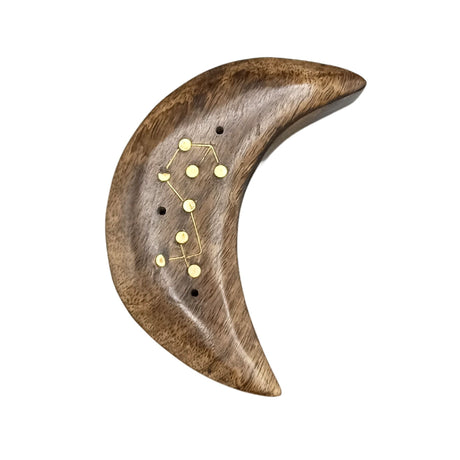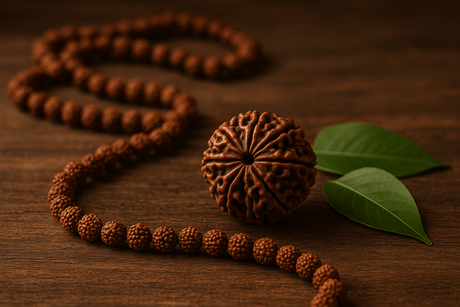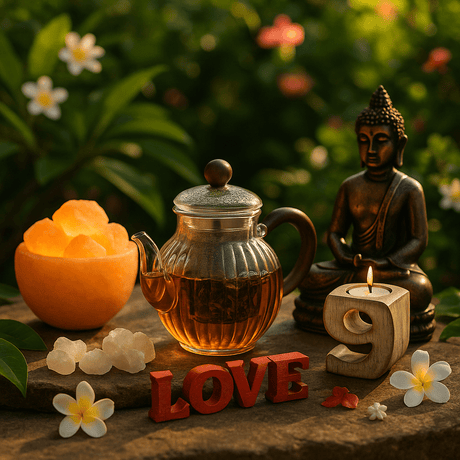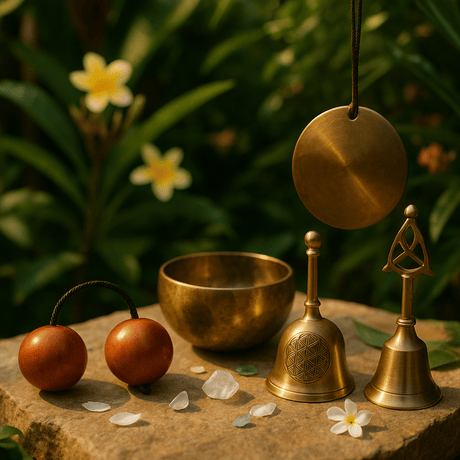Throughout history, people have relied on astrology for a variety of purposes, such as determining the best times for planting crops and selecting auspicious wedding dates. Today, astrology has become an integral part of many people's lives. When meeting new people, some inquire about zodiac signs before asking names, and vacation times are often chosen based on planetary positions and aspects in the sky.
There are numerous astrological systems around the world, each unique in its approach. In this article, we will explore the most well-known astrological systems, as well as learn about the differences between Western and Eastern astrology and what each studies.
Western (“Traditional” ) Astrology
Western Astrology, often referred to as "Traditional Astrology," is the most well-known astrological system in the Western world. This system primarily focuses on the Sun sign, which is determined by the month of birth, and the zodiac. It is rooted in the ancient Babylonian astrological system and was significantly influenced by Claudius Ptolemy's "Tetrabiblos," written in the 2nd century AD. The principles established in this work have remained largely unchanged, emphasizing the importance of the Sun and the belief that individuals can influence and shape their destinies.
This system considers 10 celestial bodies, lunar nodes, the asteroid Chiron, hypothetical planets such as Lilith and Selena, and Arabic parts like Part of Fortune and Proserpina.
One similarity between Western and Chinese astrology is that both systems are based on the date and time of birth and use 12 symbols or signs to convey specific meanings. However, there are key differences that make each practice unique. Western astrology, conceived by the Greeks and Babylonians approximately 2,000 to 3,000 years ago, centers on the relationship between the Earth and the Sun. The Tropical Zodiac measures the Sun's proximity to the Earth's tropics — the Tropic of Cancer and the Tropic of Capricorn.
The Western zodiac comprises 12 signs:
- ♈ Aries (the Ram)
- ♉ Taurus (the Bull)
- ♊ Gemini (the Twins)
- ♋ Cancer (the Crab)
- ♌ Leo (the Lion)
- ♍ Virgo (the Virgin)
- ♎ Libra (the Scales)
- ♏ Scorpio (the Scorpion)
- ♐ Sagittarius (the Centaur)
- ♑ Capricorn (the Sea-Goat)
- ♒ Aquarius (the Water Bearer)
- ♓ Pisces (the Fish)
These signs correspond to the positions of constellations relative to the Earth and are named after figures from Greek mythology. It is believed that individuals born under the same sign share similar traits. For example, those born under Pisces (February 19 through March 20) tend to enjoy solitude, music, romance, and spiritual themes, while they dislike criticism, cruelty, and know-it-alls.
The Western astrological calendar aligns with the Earth’s orbit around the Sun, with the Vernal Equinox (around March 22) marking the start of a new astrological year. This period, characterized by equal parts day and night, is considered the true beginning of the year in astrology. Although the Roman emperor established January 1 as the start of the calendar year, it holds no astrological significance. In Western astrology, the first sign, Aries, begins around the Vernal Equinox, followed by the other signs in consecutive order.
Planets play a significant role in Western astrology, symbolizing fundamental motivations in the human psyche. While the system also incorporates two moon nodes (the north or ascending node and the south or descending node), planets are considered more influential.
Additionally, Western astrology identifies four elements, with each astrological sign associated with one:
- 💧 Water signs are driven by emotion;
- 🌎 Earth signs are practical;
- 🔥 Fire signs are spontaneous;
- 🌬️ Air signs are cerebral.

Vedic Astrology (Jyotish)
Vedic Astrology, also known as Jyotish or Hindu astrology, is a traditional astrological system that originated in India over 3,000 years ago. Rooted in the ancient sacred texts known as the Vedas, Vedic astrology is distinguished by its focus on karma and the belief that our actions in past lives influence our present circumstances. Vedic astrology dates back to approximately 1,500-2,000 BCE. The term "Vedic Astrology" was popularized by Vedic astrologer David Frawley.
Karma
- Central to Vedic astrology, karma refers to the actions of past lives that shape our current reality.
- Planets are seen as the karmas of the soul, influencing both positive and negative outcomes.
- Vedic astrology offers methods to balance karmic movements, such as alleviating suffering and promoting growth.
Tools and Practices
- Predictive Techniques. Vedic astrology employs yogas (planetary combinations) and dashas (planetary periods) to make accurate predictions.
- Remedies. Includes the use of mantras, gemstones, affirmations, yoga, and Ayurvedic medicine. It's essential to consult a Vedic chart to ensure the correct remedy is applied, as the wrong gemstone, for instance, can cause harm.
Zodiac System
- Sidereal Zodiac. Unlike Western astrology's Tropical Zodiac, Vedic astrology uses the Sidereal Zodiac, which pertains to the stars.
- Precession of Equinoxes. Vedic astrology accounts for the precession of equinoxes, adjusting the zodiac signs backward by one day every 72 years to maintain accurate astronomical positions.
Planetary Periods
- Dashas. Vedic astrology uses planetary periods called dashas, which are crucial for making detailed predictions.
- Sub-periods. Each planetary period is further divided into sub-periods lasting up to three years, allowing for precise forecasts regarding career, love life, health, and more.
Chart Calculation
- Vedic astrology involves a comprehensive approach, incorporating elements of charts, physiognomy, chirology, numerology, and medical sciences like astrophysiology, psychology, and therapy.
- Birth Chart. The natal chart in Vedic astrology is calculated similarly to Western astrology but includes significant differences in interpretation and application.
- Janam Kundali. One of the central traditions in Vedic astrology is creating a Janam Kundali, or birth chart, immediately after a baby's birth. This chart maps the planetary positions at the exact time and place of birth, serving as a cosmic blueprint for the individual's life. It is used to understand personality traits, future events, and potential challenges. Families often rely on Janam Kundalis to make important life decisions, including education, career, and marriage prospects. An interesting fact is that Janam Kundalis can reveal detailed insights into an individual's past life karma and how it influences their current life.
Purpose and Philosophy
- Light and Influence. Jyotish translates to "science of light," emphasizing the study of the influence of light on all bodies.
- Cosmic Connection. Vedic astrology is based on the concept of bandhu, which teaches that humans are children of the cosmos.
- Corrective Measures. According to Vedic teachings, mantras and gemstones can correct or influence one's destiny.
Overall, Vedic astrology provides a profound and comprehensive system for understanding the influence of celestial bodies on human life, rooted in ancient wisdom and adapted for predictive and consultative practices.
What is the Difference Between Vedic Astrology and Western Astrology?
Both Western and Vedic astrology are well-established systems, each using familiar terms like signs and planets. However, there are significant differences between the two schools of thought. For instance, the concept of houses in Vedic astrology differs considerably from that in classical Western astrology.
- Planets. Both systems utilize seven primary planets — Sun, Moon, Mars, Mercury, Jupiter, Venus, and Saturn. However, Western astrology also considers Uranus, Neptune, Pluto, and many minor comets and asteroids, which Vedic astrology generally disregards. Instead, Vedic astrology emphasizes the importance of Rahu and Ketu, which signify karmic indicators. Moreover, Western astrology centers around the Sun, while Vedic astrology focuses on the Moon's position in the signs.
- Aspects. In Vedic astrology, known for its sidereal signs, aspects are considered asymmetrical. In contrast, Western astrology calculates planetary aspects based on geometric angles, treating all aspects as symmetrical.
- Charts. Western astrology primarily uses the natal chart to analyze a person's life. Vedic astrology, or Jyotish, not only employs the natal chart but also uses lunar and 16 harmonic charts to provide a detailed understanding of various life aspects.
These fundamental differences highlight the distinct approaches and methodologies of Vedic and Western astrology, each offering unique insights into astrological interpretation.

Chinese Astrology
Chinese Astrology is a complex and ancient system that differs significantly from Western astrology. According to legend, the Chinese calendar was invented by the mythical "Yellow Emperor" around 2600 BCE, while another tradition places its origins during the Zhou Dynasty.
The Chinese zodiac consists of 12 animal signs:
- 🐁 Rat
- 🐂 Ox
- 🐅 Tiger
- 🐇 Rabbit
- 🐉 Dragon
- 🐍 Snake
- 🐎 Horse
- 🐐 Goat
- 🐵 Monkey
- 🐓 Rooster
- 🐶 Dog
- 🐷 Pig
According to myth, Buddha invited 12 animals to visit him, and to honor them, he dedicated a year to each one. The order in which the animals arrived determines the sequence of the zodiac signs.
Unlike Western astrology, which is based on the position of the stars and the month of birth, Chinese astrology assigns animal signs to years, not months.
The Five Elements
Chinese astrology incorporates five elements: Fire, Earth, Water, Wood, and Metal.
- 🔥 Fire drawn to excitement;
- 🌎 Earth craves security;
- 💧Water susceptible to emotional bonds;
- 🪵 Wood loves to explore.
- 🔗 Metal considered orderly.
These elements interact with the animal signs, creating a 60-year cycle.
Influence of the Lunar Calendar
The Chinese calendar is based on the rotation of the Moon, with the lunar phases playing a significant role.
- New Moon. Individuals seek new environments.
- Waxing Moon. Known for hard work.
- Full Moon. Diplomatic.
- Waning Moon. Prefer peaceful surroundings.
Differences from Western Astrology
- Chinese astrology assigns signs based on birth years rather than months.
- Includes five elements compared to the four in Western astrology, with different interpretations and influences.
- Emphasizes the Moon’s phases over the Sun’s position, unlike Western astrology’s solar focus.
Chinese astrology offers a rich and detailed framework for understanding personality and fate through the interplay of animal signs, elements, and lunar phases. Its unique system, steeped in myth and tradition, provides insights that are both distinct and complementary to those found in Western astrology.

Horary Astrology
Horary Astrology is a specialized branch of astrology that focuses on answering specific questions by casting a horoscope for the exact moment the question is asked. This form of astrology, which originated in India, was later adopted by the Arabs in the 10th century AD and spread widely throughout Europe during the Middle Ages. Horary astrology requires the expertise of a professional astrologer, as its interpretation demands a deep understanding of astrological principles and techniques.
- Specific Questions. Horary astrology is used to answer specific questions posed by an individual.
- Horoscope Casting. A horoscope is cast for the precise moment the question is asked and for the location of the person asking the question.
- Predetermined Fate. This branch of astrology operates on the belief that a person's fate is predetermined and can be discerned through the positions of the planets at the time of the question.
Importance of Houses
- Angular Houses. The most significant houses in horary astrology are the angular houses (1st, 4th, 7th, and 10th). Planets positioned in these houses gain significant strength and influence.
- Succedent and Cadent Houses. The houses following the angular ones have less impact on the outcome of the question. Planets in succedent houses have moderate influence, while those in cadent houses are considerably weakened.
The accurate interpretation of horary charts requires professional astrological knowledge and skills. An astrologer analyzes the chart to provide insights and answers based on the planetary positions and house significances.
Horary Astrology is a unique and precise astrological practice that offers answers to specific questions by analyzing the planetary positions at the moment of the inquiry. It highlights the importance of house placements and the strength of planets, providing a detailed and focused approach to understanding predetermined aspects of one's fate.

Kabbalistic Astrology
Kabbalistic Astrology, also known as Jewish astrology, is a religious-mystical and occult tradition within Judaism that emerged in the 16th century. Its primary aim is to understand the role of the Creator in human existence, blending various traditions and approaches, and thus it is not a unified system of knowledge.
Key Concepts
-
Foundations:
- Sefirot: Kabbalistic Astrology is based on the ten sefirot, elements of the Tree of Life in Kabbalah.
- Ibn Ezra's Book: This foundational text correlates planets with biblical events in chronological order, starting from the creation of the Garden of Eden.
-
Interaction with the Hebrew Alphabet:
- 22 Letters: Each of the 22 letters of the Hebrew alphabet creates a specific zodiac sign.
- Meditation: By meditating on each letter and understanding its significance, one can connect to the energy of the corresponding zodiac sign.
-
Solar and Lunar Cycles:
- Dual Cycles: Kabbalistic astrology incorporates both the cycles of the Sun and the Moon to interpret astrological influences.
-
Beyond the Horoscope:
- Overcoming Stellar Influence: A unique aspect of Kabbalistic Astrology is its teaching that one can transcend the influence of the stars and go beyond the limitations of their horoscope.
Purpose and Philosophy
- Role of the Creator: The central aim is to comprehend the Creator’s role in human life and the universe.
- Mazal (Destiny): Also referred to as mazal or mazalot, meaning "zodiac" or "destiny," it seeks to interpret and delineate a person’s birth chart through a kabbalistic perspective.
Kabbalistic Astrology offers a profound and mystical approach to understanding human existence and destiny by integrating astrological principles with kabbalistic teachings. It emphasizes the connection between the Hebrew alphabet, celestial cycles, and spiritual growth, encouraging individuals to transcend astrological influences and achieve a deeper connection with the divine.

Conclusion
In this article, we explored various astrological systems, including Western, Vedic, Chinese, Horary, and Kabbalistic astrology. Each system offers unique methods and insights into understanding human personality, fate, and cosmic influence. While Western astrology focuses on the Sun and uses a tropical zodiac, Vedic astrology emphasizes the Moon and karmic indicators with a sidereal zodiac.
For those interested in incorporating astrology into their daily lives, SHAMTAM offers a wide range of astrology-themed products such as tarot tablecloths, tarot bags, pendants, and stickers. 💫






























































































